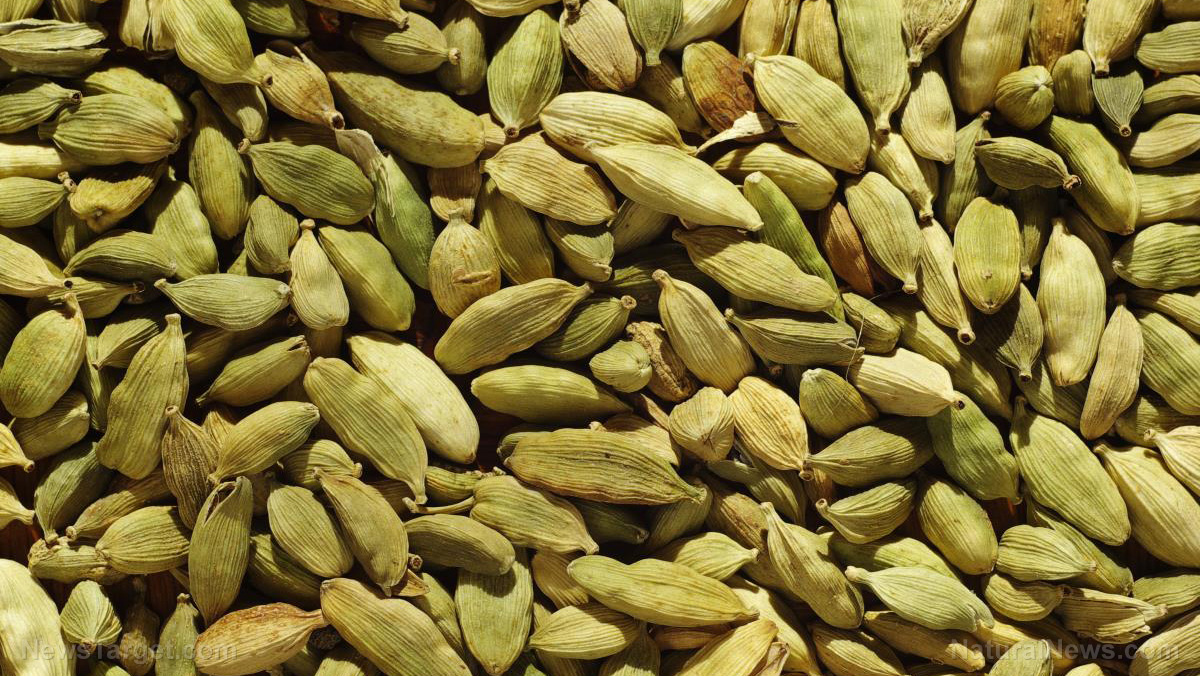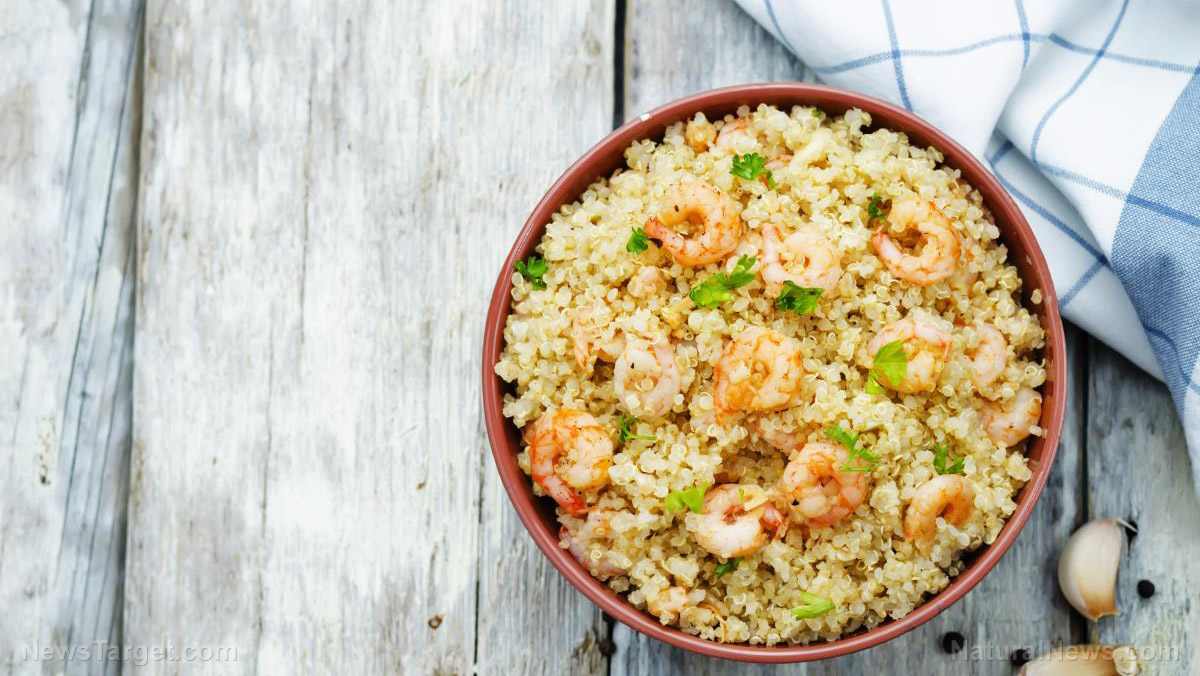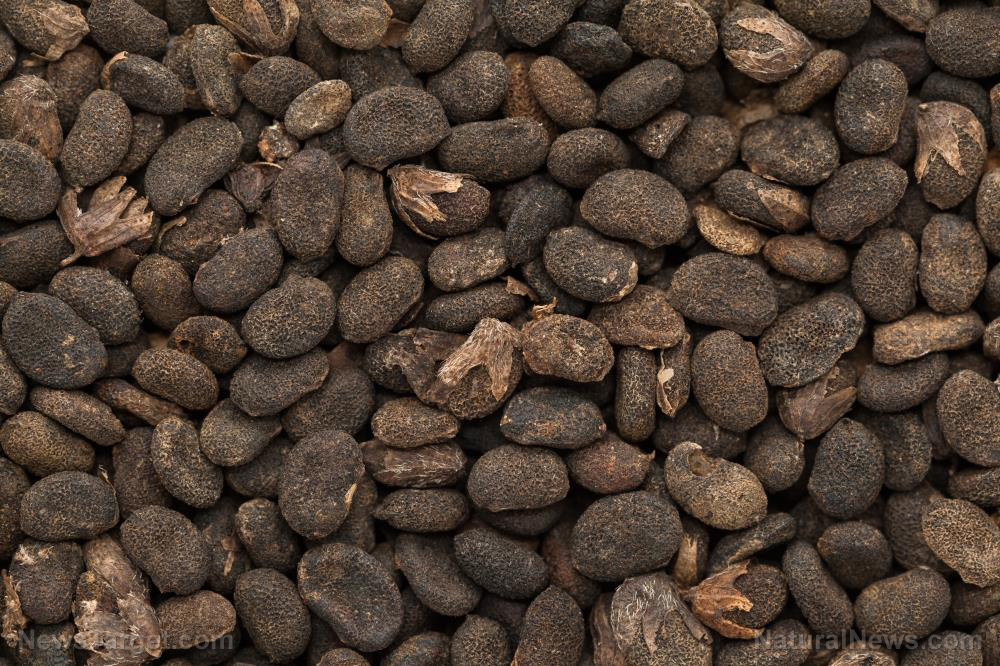Prebiotics and probiotics offer a one-two punch for keeping cancer at bay
11/04/2019 / By Evangelyn Rodriguez

There is now an even better reason for you to add prebiotics and probiotics to your diet. According to a new study in Cell Reports, the combination of these two — termed “synbiotics” — can be used to modulate the human gut microbiota and treat serious diseases like colorectal cancer.
Prebiotics and probiotics: sources and health benefits
Prebiotics are a type of indigestible fiber obtained from high-fiber foods. This dietary fiber serves as food for the beneficial microorganisms that live in the gut. Once ingested, prebiotics are not broken down by digestive enzymes and instead make it to the large intestine intact. There, gut bacteria ferment them and, in the process, produce nutrients that are essential for good digestive health. These nutrients include short-chain fatty acids, such as acetate, butyrate, and propionate, that improve metabolic health and help reduce the risk of some cancers.
The best sources of prebiotics are plant-based foods that are rich in fiber. These include fruits, vegetables, whole grains, and legumes. Although prebiotics are not as extensively studied as probiotics, research says they offer the following health benefits: (h/t to MedicalNewsToday.com)
- Improve the absorption of calcium
- Regulate the speed of carbohydrate processing inside the body
- Support the growth of probiotics in the gut
- Enhance digestion and metabolism
Probiotics, on the other hand, are live microorganisms used to ferment certain foods. These bacteria are the opposite of pathogenic microbes and are credited with easing the digestion of food, destroying disease-causing microorganisms and cells, and helping with the production of some vitamins. Many probiotics added to food products are either similar to or the same as the organisms that inhabit the human gut. Common examples of probiotics are bacteria that belong to the Lactobacillus and Bifidobacterium genera, and helpful yeasts like Saccharomyces boulardii.
Probiotics can be obtained from food or health supplements. They are also the main features of healthful fermented foods, such as yogurt, kefir, tempeh, sauerkraut, kimchi, miso, and pickles. In terms of health benefits, different probiotics have different activities. These include:
- Boosting the immune system
- Maintaining a healthy microbial composition in the gut
- Restoring gut microbiota balance
- Preventing and relieving digestive issues
- Improving mental health
Synbiotics can prevent cancer development by influencing gene expression
For their study, researchers from the University of Luxembourg investigated the diet-microbiome-host interactions using an in vitro model of the gut known as the Human-Microbial X(cross)-talk (HuMiX). HuMiX allows human intestinal cells to be cultured together with bacteria in a way that mimics conditions in the human gut.
Diet affects gut microbiota, especially the composition of different microbial communities. Dietary habits also influence complex metabolic interactions and could either promote or prevent the development of cancer. In particular, high-fiber foods are said to reduce the risk of certain cancers, although the mechanisms that enable this are poorly understood.
When the researchers examined the effects of dietary regimens on colorectal cancer cells, they found that synbiotics produced beneficial effects. Specifically, synbiotics decreased the expression of genes associated with colorectal cancer and drug-resistance. The researchers also reported that synbiotics reduced the levels of lactate, a pro-cancer metabolite.
During the simulated regimens, they noted that distinct ratios of organic and short-chain fatty acids were produced by bacteria. When they treated colorectal cancer cells with the molecular cocktail produced by the synbiotic regimen, the cocktail reduced the ability of colorectal cancer cells to self-renew.
Taken together, these results suggest that a diet that includes synbiotics has the potential to prevent or treat colorectal cancer. (Related: Gut health for your brain: Probiotics, prebiotics found to manipulate the gut in obese and insulin-resistant individuals, restoring cognitive function.)
Sources include:
Tagged Under: alternative medicine, anticancer, cancer cures, cancer treatment, Colorectal Cancer, dietary fiber, digestion, digestive health, disease treatments, fermented foods, food cures, food is medicine, functional food, gene expression, good gut bacteria, gut microbiota, healthy diet, high-fiber foods, immune system, lactate, natural cures, natural medicine, nutrients, prebiotics, prevention, probiotics, research, short-chain fatty acids, supplements, synbiotics, veggie
RECENT NEWS & ARTICLES
COPYRIGHT © 2017 PREVENT CANCER NEWS



















